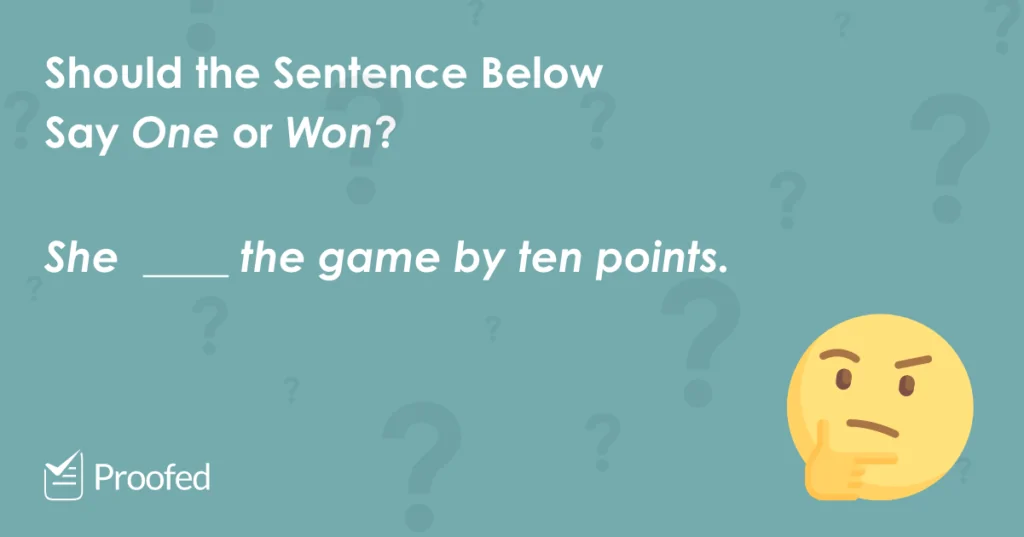It’s easy to mix up the words “one” and “won” because they sound the same, but they mean entirely different things. In this post, then, we’ll explain how to use both terms so you can make sure your writing is always error free.
One (The Number “1”)
Most commonly, “one” refers to the number represented by “1.” As such, you should use this word when referring to the number “1” in a sentence:
You should count down from ten to one.
It is also often a quantifier (i.e., a word we use before a noun to show how many there are of something). For instance, we could say:
She ate two bananas and one apple.
When it’s not being a number, “one” is also a pronoun (i.e., a word we can use in place of a noun) meaning “one of the mentioned things”:
I went to the bakery for a cupcake and got you one, too.
More rarely, people use “one” to mean “a person in general”:
Scotland is a rainy place, so one should always carry an umbrella.
Find this useful?
Subscribe to our newsletter and get writing tips from our editors straight to your inbox.
However, this use of “one” is rare outside formal or old-fashioned writing.
Won (Past Tense of “Win”)
“Won” is the past tense and past participle of the verb “win,” meaning “succeed in a race, challenge, or conflict” or “achieve through effort”:
Roger Federer won his first Wimbledon title in 2003.
She won my respect with her work ethic.
This is the only meaning of “won,” so it should be easy to remember!
Summary: One or Won?
While these words sound alike, the difference is:
- One refers to the number “1,” but it can also be a pronoun referring to a thing mentioned previously or a non-specific person.
- Won is the past tense of the verb “win.”
The key here is that “won” is always a verb (i.e., an action word). So if you’re referring to an action that happened in the past, the correct spelling will be “won.” For a number or pronoun, you’ll want the spelling “one.”
And if you’d like any more help with the spelling or word choice in a document, why not submit your writing for proofreading today?



